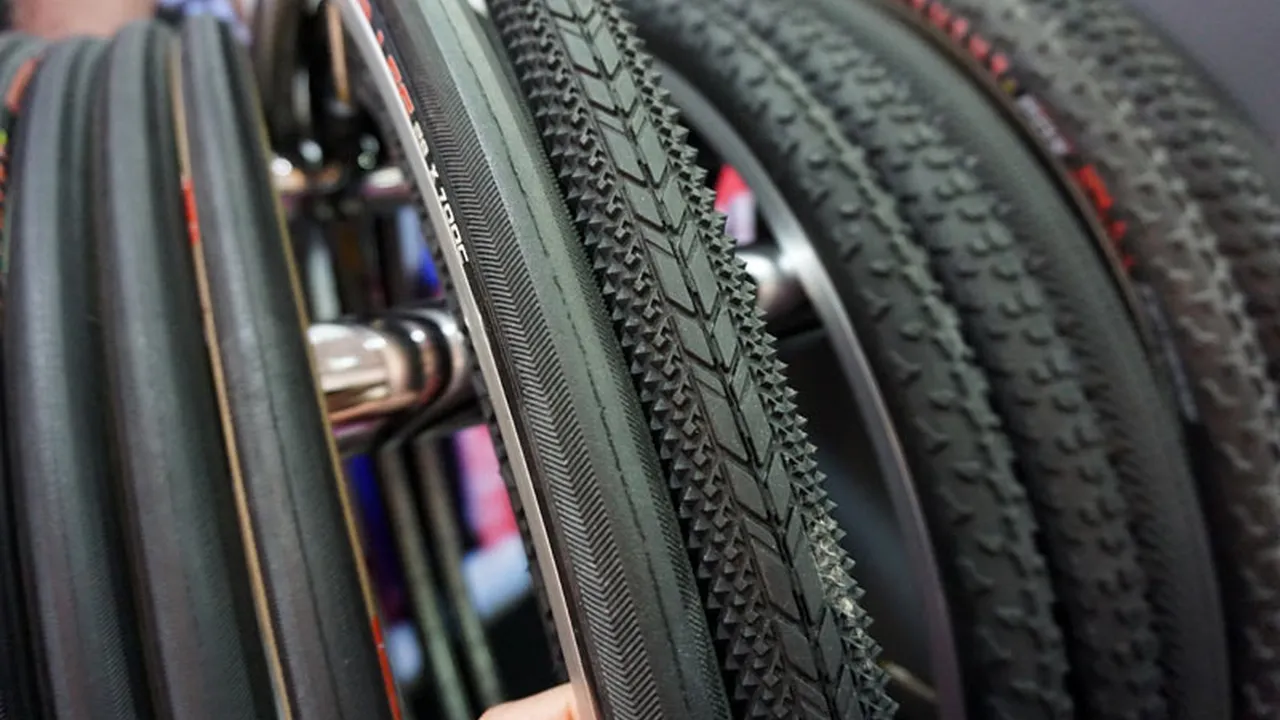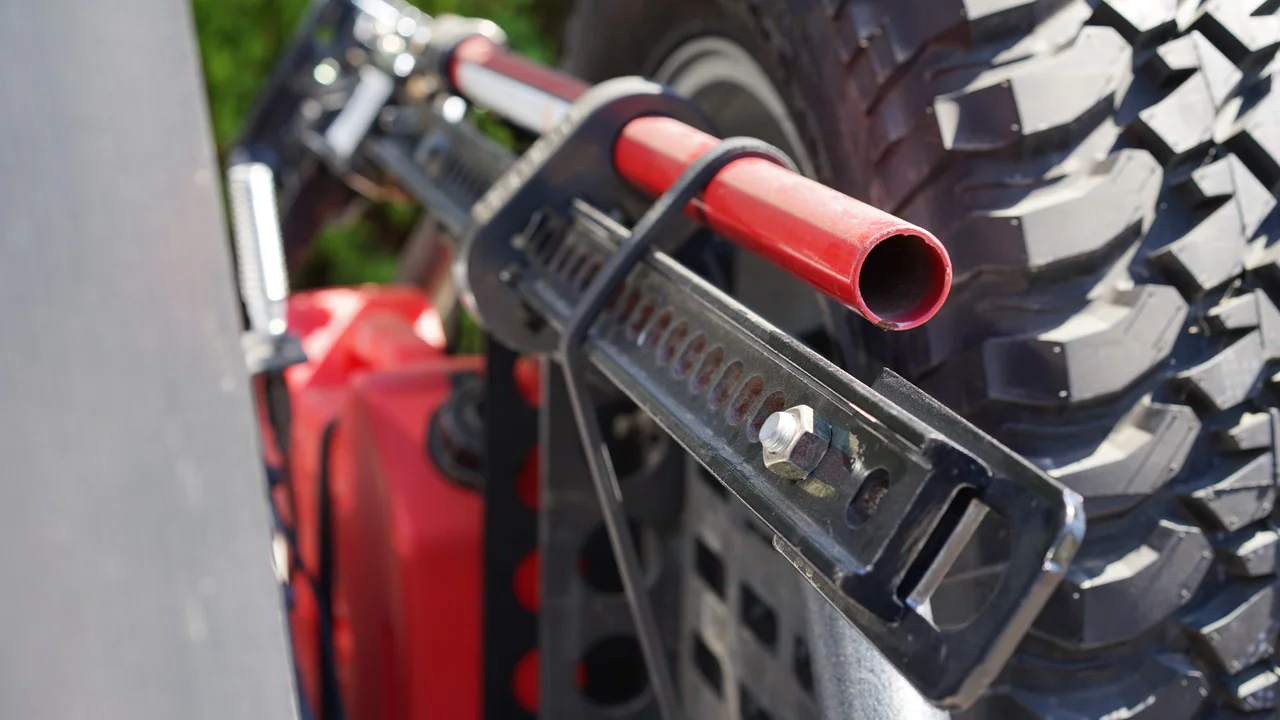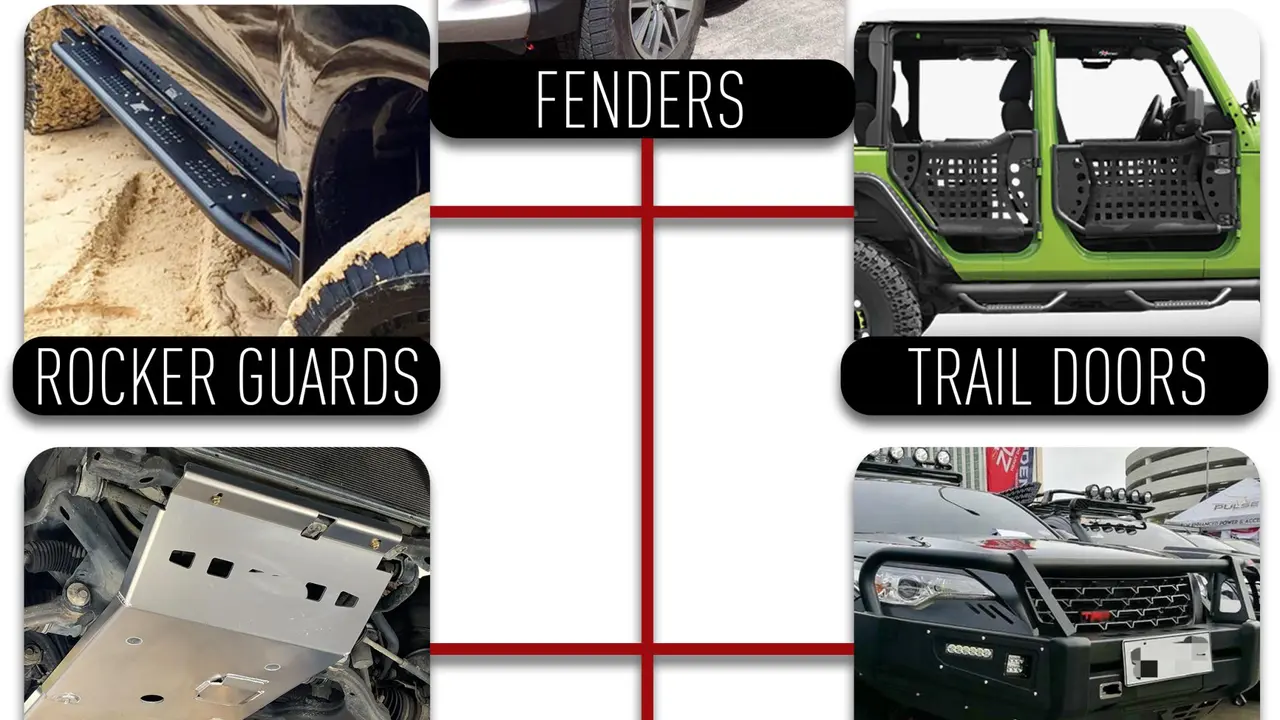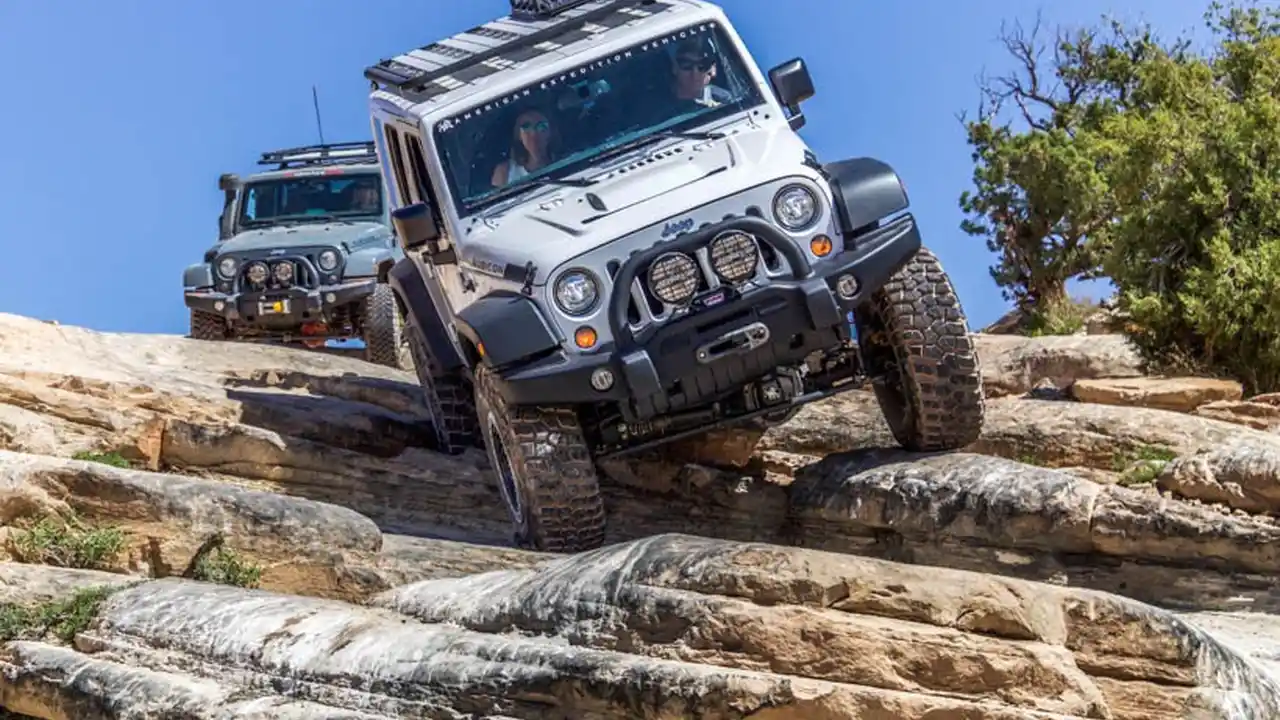Choosing the Right Wheel Material for Off-Roading
Selecting the correct wheel material is crucial for durability and performance. Learn how to choose the right wheel material for your off-road needs. Improve your vehicle's strength and handling on various terrains. Enhance your off-road experience with our expert guidance.
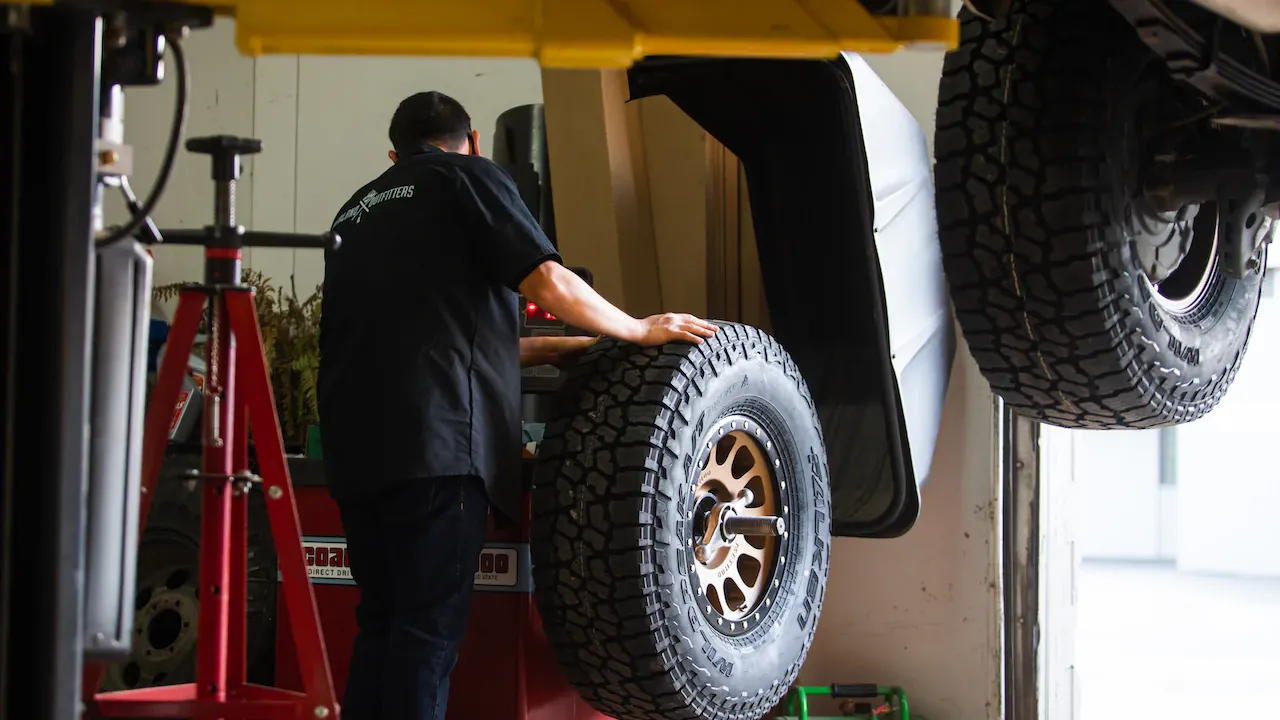
Understanding Off-Road Wheel Materials Aluminum vs Steel Wheels
Alright, so you're looking to upgrade your wheels for some serious off-roading? Smart move! The stock wheels on many vehicles just aren't built to handle the abuse that comes with tackling rough terrain. But before you slap on any old set of rims, you need to think about what they're made of. The material your wheels are constructed from makes a huge difference in their strength, weight, and overall performance. The two main contenders in the off-road wheel arena are aluminum and steel. Let's dive into the pros and cons of each.
Aluminum Wheels for Off-Roading Benefits and Drawbacks
Aluminum wheels are the flashy, lightweight option. They're generally cast or forged, and they come in a wide variety of styles and finishes. They look great, but are they tough enough for the trails?
Pros of Aluminum Wheels
- Lighter Weight: This is the biggest advantage. Lighter wheels reduce unsprung weight, which improves acceleration, braking, and handling. You'll notice a difference, especially on rough terrain.
- Corrosion Resistance: Aluminum doesn't rust like steel. It can corrode, but it's generally more resistant to the elements, especially if you live in areas with road salt.
- Style Options: Aluminum wheels come in a dizzying array of designs. You can find something to match your vehicle's aesthetic perfectly.
- Heat Dissipation: Aluminum dissipates heat better than steel, which can be beneficial for braking performance, especially on long descents.
Cons of Aluminum Wheels
- Price: Aluminum wheels are generally more expensive than steel wheels.
- Durability (in some cases): While forged aluminum wheels are incredibly strong, cast aluminum wheels can be more prone to cracking or bending under extreme impacts. It really depends on the quality and manufacturing process.
- Repair Difficulty: If you do manage to damage an aluminum wheel, repairing it can be tricky and expensive. Welding aluminum requires specialized skills and equipment.
Steel Wheels for Off-Roading The Rugged and Reliable Option
Steel wheels are the workhorses of the off-road world. They're simple, strong, and relatively inexpensive. They might not be as flashy as aluminum, but they get the job done.
Pros of Steel Wheels
- Strength: Steel wheels are incredibly durable and can withstand serious abuse. They're less likely to crack or bend compared to cast aluminum wheels.
- Price: Steel wheels are significantly cheaper than aluminum wheels. This is a big advantage if you're on a budget.
- Repairability: If you bend a steel wheel, you can often hammer it back into shape on the trail. Welding steel is also much easier and more common than welding aluminum.
Cons of Steel Wheels
- Weight: Steel wheels are heavy, which can negatively impact performance. You'll notice a difference in acceleration and handling.
- Rust: Steel is prone to rust, especially if the paint is chipped or scratched. You'll need to maintain them properly to prevent corrosion.
- Limited Style Options: Steel wheels typically come in basic designs. You won't find as many stylish options as with aluminum.
- Heat Retention: Steel doesn't dissipate heat as well as aluminum, which can affect braking performance in extreme situations.
Choosing Between Aluminum and Steel Wheels Real-World Scenarios
Okay, so you know the pros and cons. But how do you decide which material is right for you? Here are a few scenarios to consider:
- Extreme Rock Crawling: Steel wheels are generally the better choice for rock crawling. Their durability and repairability are crucial when you're constantly banging your wheels against rocks.
- Desert Racing: Forged aluminum wheels are a good option for desert racing. Their lightweight design improves performance, and the high-quality construction can withstand the abuse.
- Overlanding: It depends on your priorities. If you're concerned about weight and aesthetics, aluminum wheels might be a good choice. If you prioritize durability and affordability, steel wheels are a solid option.
- Budget-Conscious Off-Roader: Steel wheels are the clear winner if you're on a tight budget. You can get a set of durable steel wheels for a fraction of the cost of aluminum.
Specific Wheel Recommendations and Pricing
Let's get down to some specific product recommendations, along with their typical price ranges. Keep in mind that prices can vary depending on the size, finish, and retailer.
Steel Wheel Recommendations
- Pro Comp Steel Wheels: These are a classic choice for off-roaders. They're durable, affordable, and come in a variety of sizes and styles. Expect to pay around $75-$150 per wheel.
- Cragar Soft 8 Wheels: Another popular option, the Cragar Soft 8 offers a simple, rugged design at a reasonable price. They typically cost between $80-$160 per wheel.
- US Wheel Series 97: These are heavy-duty steel wheels designed for serious off-road use. They're a bit more expensive than other steel options, ranging from $100-$200 per wheel, but they're built to last.
Aluminum Wheel Recommendations
- Method Race Wheels: Method offers a wide range of high-quality aluminum wheels for off-road vehicles. Their wheels are known for their strength, style, and performance. Prices typically range from $200-$400 per wheel.
- Fuel Off-Road Wheels: Fuel is another popular brand that makes stylish and durable aluminum wheels. They offer a variety of designs to suit different tastes. Expect to pay around $250-$500 per wheel.
- Vision Wheel: Vision offers a more budget-friendly option for aluminum wheels. They're not as rugged as Method or Fuel, but they're still a good choice for moderate off-roading. Prices range from $150-$300 per wheel.
- Black Rhino Wheels: Known for their aggressive styling and robust construction, Black Rhino wheels are a favorite among off-road enthusiasts. Prices range from $250-$600 per wheel, depending on the size and finish.
Wheel Material Comparison Table
Here's a quick comparison table to summarize the key differences between aluminum and steel wheels:
| Feature | Aluminum Wheels | Steel Wheels |
|---|---|---|
| Weight | Lighter | Heavier |
| Strength | Forged are very strong, Cast can be weaker | Very Strong |
| Price | More Expensive | Less Expensive |
| Corrosion Resistance | Good | Poor (prone to rust) |
| Repairability | Difficult | Easy |
| Style Options | Wide Variety | Limited |
| Heat Dissipation | Good | Poor |
Real World User Scenarios and Feedback
Let’s look at some real users and their experiences with different wheel types.
Scenario 1: Rock Crawling in Moab with Steel Wheels
John, a seasoned rock crawler, swears by his steel wheels when tackling the challenging trails of Moab, Utah. He recounts, “I’ve bent my steel wheels against rocks multiple times, but I just hammer them back into shape on the spot. Can’t do that with aluminum. They’re the reliable choice when you’re constantly banging against boulders.” John’s choice is driven by the practical need for durability and easy repairability on demanding terrains.
Scenario 2: Desert Racing in Baja with Forged Aluminum Wheels
Maria, a Baja 1000 racer, prefers forged aluminum wheels for their lightweight advantage. “Every pound counts when you’re racing through the desert. The lighter wheels improve acceleration and handling, giving me a competitive edge. Plus, the high-quality construction can handle the abuse of high-speed racing,” she explains. Maria’s priority is performance, and she is willing to invest in top-tier wheels to gain an advantage.
Scenario 3: Overlanding Across the US with a Mix of Terrains
For Sarah, who overlands across the US, the decision was tougher. “I wanted something that looked good but also performed well. I chose aluminum wheels for their style and lighter weight, which helps with fuel economy. However, I also carry a comprehensive repair kit, just in case,” she says. Sarah’s approach balances aesthetics and performance, but she remains prepared for potential issues.
Scenario 4: Budget-Conscious Off-Roader Building a Weekend Warrior Rig
Mike, who builds his off-road rig on a budget, opted for steel wheels. “I couldn’t justify spending a fortune on wheels when I needed to upgrade so many other components. Steel wheels were the affordable and practical choice. They’re tough enough for the trails I hit on weekends, and I saved a lot of money,” he shares. Mike’s decision highlights the importance of budget considerations for many off-road enthusiasts.
Installation and Maintenance Tips
Once you've chosen your wheels, here are some tips for installation and maintenance:
- Proper Torque: Always torque your lug nuts to the manufacturer's specifications. Overtightening or undertightening can be dangerous.
- Regular Inspection: Inspect your wheels regularly for cracks, bends, or other damage. Catching problems early can prevent more serious issues.
- Cleaning: Clean your wheels regularly to prevent corrosion. Use a mild soap and water solution.
- Rust Prevention (for steel wheels): If you have steel wheels, touch up any chips or scratches in the paint to prevent rust. You can also apply a rust inhibitor.
- Balance: Make sure your wheels are properly balanced to prevent vibrations and uneven tire wear.
Final Thoughts
Choosing the right wheel material for off-roading is a personal decision that depends on your budget, driving style, and priorities. Steel wheels are a great option for those who prioritize durability and affordability, while aluminum wheels offer a lighter weight and more stylish appearance. Consider your needs carefully and choose the wheels that are best suited for your off-road adventures. Happy trails!
:max_bytes(150000):strip_icc()/277019-baked-pork-chops-with-cream-of-mushroom-soup-DDMFS-beauty-4x3-BG-7505-5762b731cf30447d9cbbbbbf387beafa.jpg)



